

Faculty of Graduate Studies
Shamim Anowar (pictured opposite)
WHEN YOU BELONG,

Discover your potential in a community where your story matters.
Intelligent Community Forum (ICF) has named Winnipeg an Intelligent Community annually since 2023 due to its global leadership in technology deployment and digital innovation.

We’re multicultural — more than 100 languages are spoken
The heart of Canada
Winnipeg is the capital city of Manitoba and located in the centre of Canada, which is consistently ranked one of the world’s safest countries and best places to live.
Manitoba’s diverse economy includes major industrial sectors such as aerospace, financial services, biotechnology, manufacturing, information and communication technologies, interactive digital media, and more.

Winnipeg is Canada’s 7th largest city, with a population of just over 850,000 people.
Explore Canada! Toronto is just a two-hour flight away.
Credit: Mike Peters
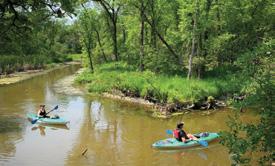




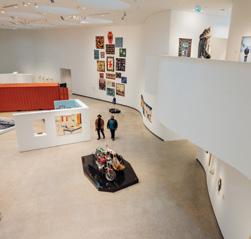
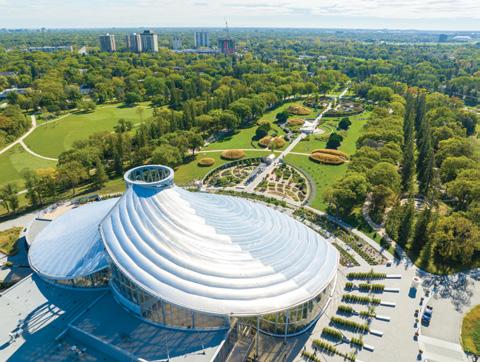

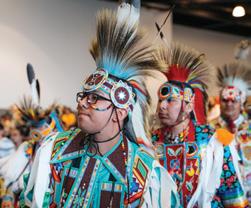

Life in Winnipeg
Our central downtown campus is only steps away from exciting nightlife, galleries, museums, and shopping, as well as being close to green spaces, bike paths, and walkways.
Nature's doorstep
› Skate on the world's longest natural skating trail, hike through beautiful forests, and paddle on lakes and rivers, all within the city of Winnipeg.
Art galleries and museums
› Winnipeg is home to world-class cultural institutions like the Winnipeg Art Gallery and the Canadian Museum for Human Rights.
History and culture
› Winnipeg’s rich history and diverse cultures shape its identity. From Indigenous heritage to French and Ukrainian influences, the city celebrates its roots through festivals, museums, and historic neighbourhoods. It’s a place where tradition and innovation meet.
Winter activities
› Winnipeg embraces winter with energy and charm, offering ski trails, snowshoeing paths, and winter celebrations like Festival du Voyageur.
01. Kayaking on the Seine River
02. Skating on the River Trail
03. Winnipeg Art Gallery — Quamajuc
04. Polar bears at Assiniboine Park Zoo
05. The Leaf in Assiniboine Park
06. Historic Exchange District
07. Northern lights
08. Manito Ahbee Festival
09. Winnipeg Jets White Out Street Party
10. Festival du Voyageur
Four seasons Winnipeg experiences has four distinct seasons.
Stunning attractions
› Immerse yourself in unforgettable experiences only found in Winnipeg! Visit The Leaf, a breathtaking indoor biomes and gardens space, and the Assiniboine Park Zoo, home to the award-winning Journey to Churchill polar bear exhibit.
Sports and culture
› Winnipeg is home to the NHL’s Winnipeg Jets and CFL’s Winnipeg Blue Bombers. Join in on a downtown Jets street party, just minutes from campus!
Festivals
› Winnipeg’s festivals bring the city to life year-round, with highlights like Winnipeg Folk Fest, a world-renowned outdoor music celebration, Folklorama, the largest and longest-running multicultural festival of its kind, and Festival du Voyageur, Western Canada's largest winter festival.
Affordability
› Winnipeg is one of the most affordable major cities in Canada, especially when it comes to housing, transportation, and everyday expenses.
The Globe and Mail named Winnipeg Canada's 3rd most livable city in 2024.
Winnipeg is the cultural cradle of Canada.
Students enrolled in the UWinnipeg Faculty of Graduate Studies

There are more than 1,650 current international students from 94 countries studying at UWinnipeg.
9,000
Students attend The University of Winnipeg.
Campus culture
UWinnipeg has a long tradition of academic excellence and is noted for small class sizes, environmental commitment, Indigenous scholarship, and campus diversity. When you become a student here you will join the vibrant community and culture of downtown Winnipeg.
Downtown campus
Our campus is centrally located in downtown Winnipeg. Our students enjoy close proximity to public transit, sports centres, shopping, museums, art galleries, and many restaurants.
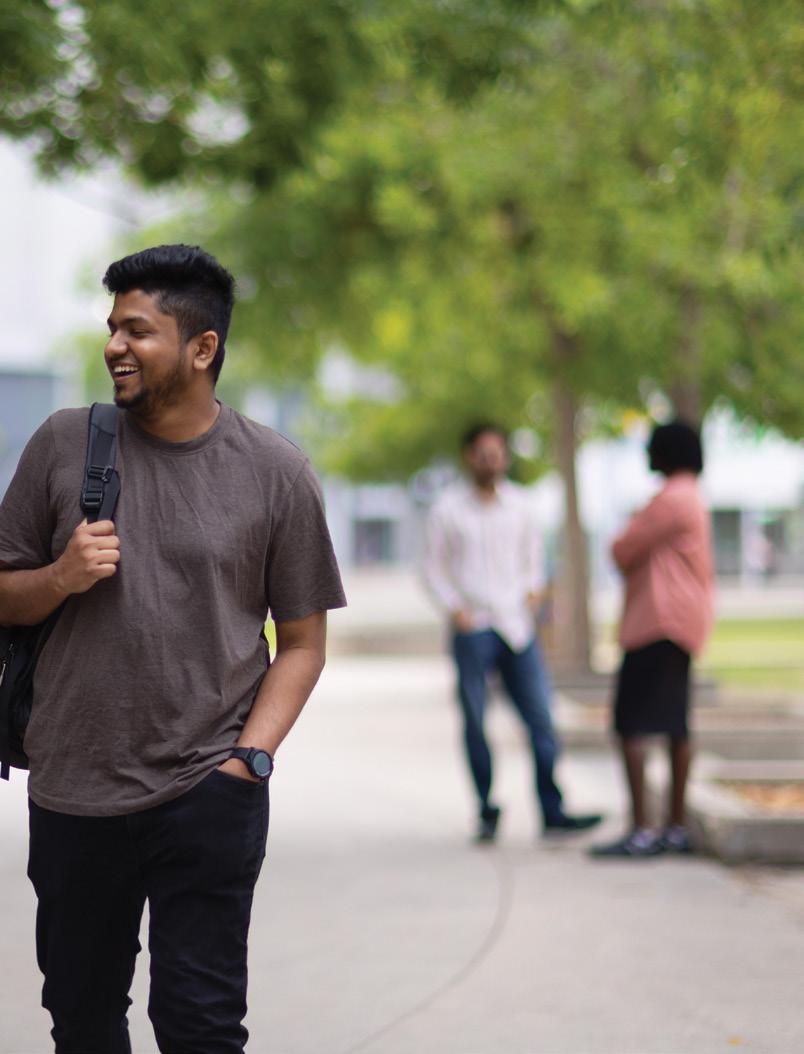
Everything you need
Our classrooms are located on The University of Winnipeg campus. These facilities include: fitness centre, campus restaurants, library, computer labs, student lounges, medical clinic, and bookstore.
Graduate programs
The University of Winnipeg’s graduate programs develop students' in-depth subject matter expertise and engage them in cutting-edge research. Guided by world-class faculty in small, collaborative cohorts, students benefit from exceptional mentorship and networking. Our programs are interdisciplinary and prepare graduates for high-impact careers across a wide range of industries.
uwinnipeg.ca/graduate-programs
Our Graduate Program Advantage
Innovative, multidisciplinary programming
Small cohorts enable high-quality educational experiences and networking opportunities
Our award-winning faculty includes a number of Canada Research Chairs
Funding opportunities through internal and external scholarships and awards
Research and fieldwork opportunities from the start of your graduate program career
Exceptional employment rates for graduate students

Programs by degree type
Master of Arts (MA)
› Applied Economics
› Criminal Justice
› Cultural Studies
› Environmental and Social Change
› History*
› Indigenous Governance
› Peace and Conflict Studies*
› Religion*
Master of Environment (MEnv)
› Environmental and Social Change
Master of Science (MSc)
› Applied Computer Science and Society
› Bioscience, Technology, and Public Policy
› Environmental and Social Change
Professional Degrees
› Master in Management (MiM)
› Master’s in Development Practice: Indigenous Development (MDP)
› Master of Marriage and Family Therapy (MMFT)
› Master of Public Administration (MPA)*
PhD
› Bioscience and Policy
Joint Master’s Programs
The University of Manitoba and The University of Winnipeg together offer four Joint Master’s Programs (JMPs):
› Master of Arts in History
› Master of Arts in Religion
› Master of Arts in Peace and Conflict Studies
› Master of Public Administration
The Joint Master’s Programs enhance the rich collaborative relationship that exists between the two institutions. JMP students are granted access to each university’s courses and research facilities and receive a joint parchment upon graduation.
The University of Manitoba’s Faculty of Graduate Studies is primarily responsible for admissions and student files related to the Joint Master’s Programs. Interested students should refer to information on the University of Manitoba’s admissions and applications procedures at: umanitoba.ca/graduate-studies
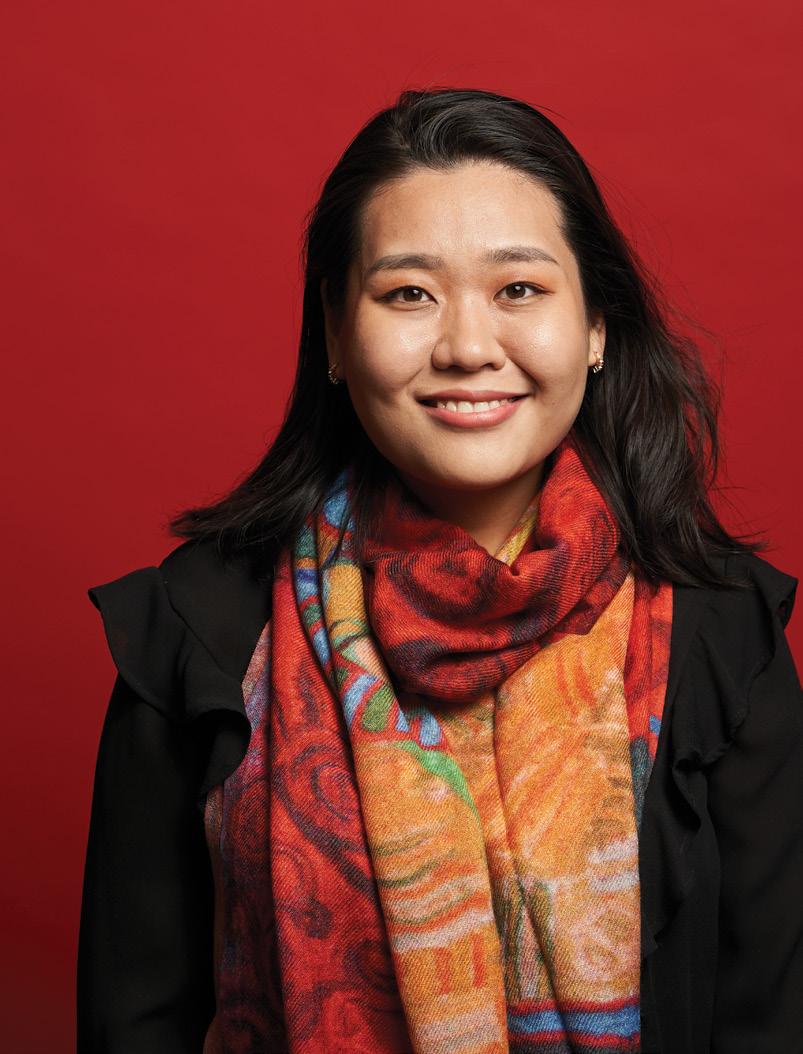
This degree has made me a more responsible person, especially given my dual identity belonging here and back home.
Master of Arts programs
Applied Economics (MA)
One year full-time | Course based
The Master of Arts in Applied Economics program trains students to use the tools of economics to address pressing socio-economic concerns in a variety of fields including health care, the environment, poverty, and labour issues. Students become proficient in economic analysis and learn to apply their knowledge to contemporary issues worldwide.
Students complete a total of 24 credit hours, including 12 from core courses. The additional credit hours may be completed from electives in economics and related fields, or from a combination of economics courses and a faculty-supervised research project. Students may choose to complete a concentration in either Policy Analysis or Environmental, Resource and Development Economics.
"Completing both a BBA in Economics & Finance and an MA in Applied Economics equipped me with the confidence, skills, and perspective to begin my career as a Policy Analyst with the Government of Manitoba. The University’s dynamic programs, faculty, and community provided a strong foundation that continues to shape my professional growth. ”
Criminal Justice (MA)
Four years full-time | Course based | Thesis based
The Master of Arts (MA) in Criminal Justice provides training in theory, methods, and research. Topics include, but are not limited to, policing, corrections, social services, and policy development. Students gain an in-depth understanding of the criminal justice system, and advanced skills in research methodology, study design and application, and policy development.
In addition to coursework, students choose between completing an MA thesis or writing a knowledge synthesis project.
The degree may be completed on a full- or part-time basis. Because of its flexibility and options for practical and applied studies, the program is a strong option for traditional students pursuing advanced studies as well as in-service professionals.
Sample career paths
› Data Analyst
› Policy Analyst
› PhD Candidate
Sample courses
› Cost-Benefit Analysis and Valuation Techniques
› Competition Policy
› Politics of Urban Development
Eligible undergraduate degrees*
› Economics
Contact
Dr. Amrita Ray Chaudhuri
Graduate Program Committee Chair econgrad@uwinnipeg.ca

Marissa Chernoff
Alumna — MA in Applied Economics; Policy Analyst, Government of Manitoba
Sample career paths
› Crime and Policy Analyst
› Program Development
› PhD Candidate
Sample courses
› Conceptualizing Criminal Justice
› Seminar in Research Design
› Interdisciplinary Perspectives on Preventing Wrongful Convictions
Eligible undergraduate degrees*
› Criminal Justice/Criminology
› Psychology
› Political Science
Contact
Dr. Katharina Maier
Graduate Program Committee Chair
k.maier@uwinnipeg.ca
"I have always admired the intersection between art and my Métis culture. That’s why I loved the curatorial practices program. I had opportunities to embrace my culture in classes and spaces like the aajijiwan New Media Lab.”
KC Adams
Alumna — MA in Cultural Studies: Curatorial Practices; Relational Maker; Artist; Educator
"The arts, especially museums and galleries, are on the front lines of cultural shifts. Students who enter the Master of Cultural Studies are taught the theories and histories of social changes which help them do good work in museums and galleries.”
Serena Keshavjee
MA in Cultural Studies (Curatorial Practices) Coordinator; Associate Professor, Department of History
"This experience introduced me to inspiring professors whose teaching approaches significantly supported my academic development and successful transition into a PhD program in English and Cultural Studies at McMaster University.”
Precious Gauthier
Alumna — MA in Cultural Studies: Texts and Cultures; BA English; BSc Biology; PhD Student, McMaster University



Cultural Studies (MA)
One year full-time
The only graduate program in Cultural Studies in Western Canada, the University of Winnipeg's multidisciplinary Master of Arts in Cultural Studies offers specializations in Curatorial Practices and Texts and Cultures.
Curatorial Practices Specialization
Course based | Practicum
The Master of Arts (MA) in Cultural Studies: Curatorial Practices offers a mixture of theoretical and practical courses that introduce students to critical issues in the study of visual cultures. Historical and contemporary curatorial principles are studied in a seminar format. Students also engage in a hands-on practicum course with individual placements in partnered art institutions.
Sample career paths
› Art gallery and museum curators
› Art historians and critical writers
› PhD Candidate
Sample courses
› The Idea of the Museum
› Art History and Exhibition Practice
› Topics in Visual Cultures
Eligible undergraduate degrees*
› Art History
› Anthropology
› Fine Arts
Contact
Dr. Serena Keshavjee Program Coordinator s.keshavjee@uwinnipeg.ca
Texts and Cultures Specialization
Course based
The Master of Arts (MA) in Cultural Studies: Texts and Cultures specialization offers a variety of courses that introduce students to critical issues in the study of literary and textual cultures. Topics, studied in a seminar format, include questions central to the field: What constitutes a text? How do some texts come to be valued over others? How do questions of value relate to the distribution of power and authority?
Sample career paths
› Publishing
› Post-secondary instruction
› PhD Candidate
Sample courses
› Topics in Genders, Sexualities, and Cultures
› Topics in Manuscript, Print, and Digital Cultures
› Topics in Cultures of Childhood
Eligible undergraduate degrees*
› English
› Rhetoric and Communications
› History
Contact
Dr. Peter Ives
Graduate Program Committee Chair p.ives@uwinnipeg.ca

History (MA)
One or two years full-time | Course based | Thesis based | Practicum
The Master of Arts in History is a Joint Master’s Program offered by the History Departments of The University of Winnipeg and the University of Manitoba. The program prepares students to undertake independent research and place their findings within their historical context.
Students in the program choose one of four streams: a major research paper MA (one year), a course MA (one year), a thesis MA (two years), or an Archival Studies MA (two years). Faculty specializations include: Indigenous North America, Canada, Asia, Africa, Medieval and Early Modern Europe, Modern Europe, the United States, Latin America, the History of Science and Medicine, and Archival Studies.
This is a Joint Master’s program and applications and administrative details are processed by the University of Manitoba. Interested students should refer to information on the University of Manitoba’s admissions and applications procedures at: https://umanitoba.ca/graduate-studies.
Indigenous Governance
Two years full-time | Thesis based | Practicum | Comprehensive exam
The Master of Arts (MA) in Indigenous Governance is an interdisciplinary program that provides students with theoretical and practical skills to examine and address Indigenous governance in political, social, economic, and cultural contexts. The focus is on Indigenous nations in North and South America, but the international context is discussed.
An MA in Indigenous Governance prepares students to take leadership positions in the private and public sectors, to create and influence policy, to creatively approach development and governance from an Indigenous perspective, to promote the visibility and recognition of sovereign Indigenous peoples and communities in Canada and abroad, and to pursue for further education in PhD programs.
Sample career paths
› Policy Analyst
› Archivist
› PhD Candidate
Sample courses
› History and Memory
› Indigenous History: Advanced Studies
› Gender History in Canada
Eligible undergraduate degrees*
› History
Contact
Dr. Ryan Eyford
Graduate Program Committee Chair r.eyford@uwinnipeg.ca
Sample career paths
› Policy Analyst
› Non-profit leadership
› PhD Candidate
Sample courses
› Indigenous Self Determination
› Pathways to Indigenous Wisdom
› Indigenous Research Methodologies
Eligible undergraduate degrees*
› Bachelor of Arts
Contact
Dr. Jacqueline Romanow
Graduate Program Committee Chair j.romanow@uwinnipeg.ca
Peace and Conflict Studies (MA)
Two years full-time | Thesis based | Comprehensive exam
The Master of Arts (MA) in Peace and Conflict Studies is a Joint Master’s Program offered by the University of Winnipeg and the University of Manitoba. The program trains students in strategies to analyze and resolve social conflicts; to examine the structural roots of social conflicts, divisions and inequalities; and to build community and promote social justice.
The program uses holistic and interdisciplinary approaches to prepare students to pursue independent research and practice in local, national and global conflict dynamics and issues. The degree is offered with either a thesis option or a comprehensive examination.
This is a Joint Master’s program and applications and administrative details are processed by the University of Manitoba. Interested students should refer to information on the University of Manitoba’s admissions and applications procedures at: https://umanitoba.ca/graduate-studies.
Religion (MA)
Two years full-time | Course based | Thesis based
The Master of Arts (MA) in Religion is a Joint Master’s Program offered by The University of Winnipeg and the University of Manitoba. Students explore advanced topics in religion and culture such as biblical studies, the history of Christianity, world religions, women and religion, and hermeneutics.
Students learn to think critically about how religion has shaped the way individuals understand themselves, their communities, and the world. It sensitizes students to the variety of traditions, commitments, and cultures which exist in our world. The program provides an environment to reflect upon one’s own experiences with religion, and to consider the dilemmas of modern life from a variety of perspectives.
This is a Joint Master’s program and applications and administrative details are processed by the University of Manitoba. Interested students should refer to information on the University of Manitoba’s admissions and applications procedures at: https://umanitoba.ca/graduate-studies.
Sample career paths
› Registered Marriage and Family Therapist
› School Counsellor
› EAP Provider
Sample courses
› Interpersonal Communication, ProblemSolving, and Trust-Building
› Theories of Conflict and Conflict Resolution
› Peacebuilding and Social Justice
Eligible undergraduate degrees*
› Peace and Conflict Studies/ Dispute Resolution
› Education
› Social Work
Contact
Dr. Saad Ahmad Khan Graduate Program Committee Chair pacs@uwinnipeg.ca
Sample career paths
› International Development Professional
› Publishing and Editorial Professional
› PhD Candidate
Sample courses
› Seminar in Biblical Religions
› Seminar in Religion and the Modern World
› Seminar in Comparative Religions
Eligible undergraduate degrees*
› Religion
› Religion and Culture
Contact
Dr. Jane Barter
UWinnipeg Graduate Program Committee Chair j.barter@uwinnipeg.ca
UWinnipeg graduates rate their educational experience in the Top 10 of all Canadian universities.
In 2024–25, our graduate students received 1.97 million dollars in internal and external scholarships and awards.

As an international student, UWinnipeg offered me a close-knit community where I could focus on research while building lasting friendships.
Mohammad Anas Shoebullah Khan Alumnus — MA in Environmental and Social Change; Project Manager, Dried Fish Matters, The University of Manitoba
Master in Environmental and Social Change (MESC) program
Environmental and Social Change (MA, MEnv, MSc)
Two years full-time | Thesis based
The Master in Environmental and Social Change program is an interdisciplinary research-intensive program focused on human roles in the environment. Students learn applied analytical techniques, critical thinking, and best practices for sustainable ecosystems, policies, and societies.
A cohesive scholarly community encourages cross-disciplinary collaboration and provides students access to diverse faculty and areas of specialization. The interdisciplinary curriculum develops common contextual knowledge and professional competencies essential for addressing complex problems. Specialized training at the nexus of human geography, environmental sciences, and environmental studies, builds problem-focused, disciplinary knowledge and research skills. Throughout, students develop the customized knowledge and skills needed to address complex human-environmental issues.
Sample career paths
› Climate Change Specialist
› Indigenous Relations Liaison
› PhD Candidate
Sample courses
› Interdisciplinary Research Foundations
› Topics in Environmental Studies and Human Geography
› Topics in Environmental Science and Physical Geography
Eligible undergraduate degrees*
› Environmental Sciences/ Studies; Geography
› Planning
› Indigenous Studies
Contact
Dr. Jay Maillet
Graduate Program Committee Chair mesc@uwinnipeg.ca
“Pursuing my Master’s in Environmental & Social Change at UWinnipeg has been an incredibly rewarding experience, both academically and personally. As an international student from Sri Lanka with a young family, I felt welcomed, and the faculty and staff were always there to support, making it much easier to navigate the challenges we faced. I am deeply grateful for this opportunity and look forward to making Manitoba our long-term home.”
Chathuri Mudalige
Student — MSc in Environmental and Social Change; Laboratory Technician, Grain Research Laboratory, Canadian Grain Commission / Government of Canada


Master of Science programs
Applied Computer Science and Society (MSc)
Two years full-time | Course based | Thesis based
The Master of Science in Applied Computer Science and Society focuses on issues of technology and the ethical, human, and social aspects of computing. The program offers courses in three clusters representing the frontiers of the discipline: Information Representation, Search and Management, Intelligent Systems, and Systems Development.
Students have the opportunity to work with outstanding faculty who have a wide range of research interests including: Algorithms and Complexity, Artificial Intelligence, Advanced Machine Learning, Cloud Computing, Complex Adaptive Systems, Digital Agriculture, Digital Forensics, Health Informatics, Image Processing, Internet of Things, Wireless Sensor Networks, Web and Document Databases.
"My master’s journey has been transformative. I entered the ACS program eager to learn and am leaving with technical expertise and the confidence to tackle complex challenges through hands-on research in digital agriculture. I am grateful to Dr. Michael Beck and Dr. Christopher Bidinosti, whose guidance, collaborative environment, and opportunities to present at conferences, shaped me into a resilient scientist. ”
Bioscience, Technology, and Public Policy (MSc)
Two years full-time | Thesis based
The Master of Science in Bioscience, Technology and Public Policy is designed to provide advanced, applied training in life sciences for success in academia and industry. Students develop theoretical background and technical skill in the field of biology and learn to understand and communicate the implications of bioscience research for policy development.
Students spend the bulk of their time working with a faculty supervisor on a Master of Science thesis project. In addition to the thesis, students complete 12 credit hours of courses which provide training in policy application and development, communication to scientists and nonscientists, and develop technical skills in bioscience.
Sample career paths
› Software Engineer
› Systems Analyst
› PhD Candidate
Sample courses
› Advanced Data Structures and Algorithms
› Advanced Machine Learning
› Applied Parallel Programming
Eligible undergraduate degrees*
› Applied Computer Science
› Computer Engineering
› Mathematics
Contact
Dr. Sheela Ramanna Graduate Program Committee Chair s.ramanna@uwinnipeg.ca

Faith Titobiloluwa Akinyemi
Student — MSc in Applied Computer Science and Society; Teaching Assistant / Lab Instructor
Sample career paths
› Fish and Habitat Protection Biologist, Department of Fisheries and Oceans Policy Research (non-profit/government)
› Laboratory Technician, National Microbiology Laboratory
› PhD Candidate
Sample courses
› Bioscience and Policy
› Current Topics in Genetics & Genomics
› Molecular Biotechnology
Eligible undergraduate degrees*
› Biology
› Chemistry
› Environmental Sciences
Contact bioscience@uwinnipeg.ca
Professional programs
Management (MiM)
One year full-time | Course based
The Master in Management degree (MiM) provides in-depth training and development in two specializations: technology, innovation, and operations management; and data analytics.
Designed through a partnership between industry and academia, the degree addresses the most pressing challenges and opportunities facing organizations in all industries.
The MiM degree attracts career-driven individuals with an undergraduate degree and work experience who are seeking additional management credentials. The program welcomes individuals in a variety of disciplines and this environment is conducive to innovation and building a broader personal network. In this course-based program, the offerings are flexible and include interactive asynchronous online courses and face-to-face interactions.
"Enrolling in and successfully completing UWinnipeg’s Master in Management Graduate degree afforded me the ability to confidently step into a leadership role. This degree program focused not only on management operations but also financial controls, technology management and inspiring innovation in an organization which rounded-out my previous education and experience in HR. I am thankful for the knowledge gained via this program as well as the connections I made with the professors, industry leaders and my cohort."
Development Practice: Indigenous Development (MDP)
Two years full-time | Course based | Practicum
The Master’s in Development Practice (MDP): Indigenous Development is a professional degree that focuses on how Indigenous systems and knowledge can shape a sustainable path for development. Rooted in identity and culture, students learn the skills required to be a successful practitioner of sustainable development in Canada and abroad. Indigenous knowledge and experience are at the core of an interdisciplinary curriculum.
With two three-month field placements, students have the opportunity to put their learning into practice, gaining important experience, and establishing connections with organizations engaged in Indigenous development across the globe.
Students may also choose to complete a major research project as part of their coursework.
Sample career paths
› Supply Chain Manager
› Data Analyst
› Director of Operations
Sample courses
› Leadership and Innovation
› Business Strategy
› Descriptive Analytics
Eligible undergraduate degrees*
› Business
› Economics
Contact mim@uwinnipeg.ca

Amanda Bibeau
Alumna — Master in Management; Executive Director, Canadian Association of Farm Advisors
Sample career paths
› Program Coordinator
› Community Development Consultant
› Policy Advisor
Sample courses
› Indigenous Thought and Worldviews: Sustainable Understandings
› Indigenous Research Methods
› Indigenous Self-Determination and Self-government
Eligible undergraduate degrees*
› Indigenous Governance/Studies
› Conflict/Dispute Resolution
› International Development Studies
Contact mdp@uwinnipeg.ca
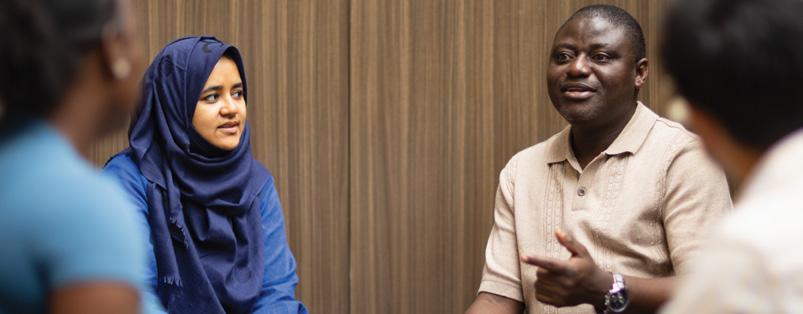
Public Administration (MPA)
Two years full-time | Course based | Practicum
The Master of Public Administration is a Joint Master’s Program offered by The University of Winnipeg and the University of Manitoba. Through a combination of course work and experiential learning, students acquire in-depth knowledge of the theory and the practice of government organizations, including knowledge of the political, economic, and social contexts in which they operate.
All students take a set of courses designed to encourage innovative and integrative perspectives. Students also have the opportunity to take a range of courses in the areas of health care, public finance, aboriginal government, and organizational change. For experiential and practical learning, the program includes to paid co-operative work placements.
Sample career paths
› Program Director
› Senior Policy Analyst
› Research Analyst
Sample courses
› Principles of Public Finance for Policy Analysis
› An Indigenous Approach to Program Evaluation
› Public Policy Processes and Issues
Eligible undergraduate degrees*
› Political Science
› Social work
› Economics
Contact
Dr. Linda DeRiviere
UWinnipeg MPA Associate Chair l.deriviere@uwinnipeg.ca
Marriage and Family Therapy (MMFT)
Three years full-time | Course based | Practicum
The Master of Marriage and Family Therapy (MMFT) program prepares students to become ethical, effective, and competent marriage and family therapists who work within a systemic/relational framework. The program is accredited by the Canadian Association for Couple and Family Therapy.
The program has a strong clinical focus. Students receive rigorous clinical training under close supervision by qualified clinical supervisors. Graduates demonstrate an understanding of and appreciation for diversity in clinical settings as they serve the community.
The MMFT program is structured to meet the needs of part-time students, with a few full-time spots available every year. Most courses are offered in the evening and meet weekly.
Sample career paths
› Registered Marriage and Family Therapist
› School Counsellor
› EAP Provider
Sample courses
› Self in the Family Laboratory
› Issues of Diversity in Family Therapy
› Supervised Marriage and Family Therapy
Eligible undergraduate degrees*
› Social Work
› Psychology
› Sociology Contact mftinfo@uwinnipeg.ca

“At The University of Winnipeg, being a graduate student means being part of a supportive community that encourages collaboration and personal growth. I chose UWinnipeg for its strong mentorship and research opportunities, and I’ve been fortunate to learn from professors and fellow graduate students who continue to inspire me and shape my experience.”
Hailey Langford
PhD program
Bioscience and Policy (PhD)
Four years full-time | Thesis based
The PhD in Bioscience and Policy is a research-intensive degree that provides advanced training in the life sciences.
Students acquire theoretical background and technical skills, an understanding of the implications of bioscience research for policy development, and the ability to communicate their research to a range of audiences. Students are trained in science and ethics, science and public policy, and science in the context of national and international issues.
Students work with a faculty supervisor on a thesis project designed to make a novel scientific contribution in a range of fields such as genetics and genomics, bioinformatics, cell biology, physiology, behavioural ecology, and natural resource management.
Minimum program length is three years. Expected time to completion is four years, with a maximum of seven years.
Sample career paths
› Fish and Habitat Protection Biologist, Department of Fisheries and Oceans Policy Research (non-profit/government)
› Senior Wildlife Biologist, WSP Consultants
› Academic Faculty Member
Sample courses
› Bioscience and Policy
› Current Topics in Ecology
› Geographic Information Analysis
Contact Dr. Craig Willis
Graduate Program Committee Chair bioscience@uwinnipeg.ca
Grads Get Hired
Our graduates have an employment rate of 95.9% two years after graduation.
Student Support Health & wellness facilities, including a counselling centre, are right on campus.
Proud Graduates
90% of our grads are satisfied or very satisfied with the education they received here.
Graduate student application journey
1. Research programs — read program fact sheets to find the best fit
2. Contact a research supervisor — if applicable
4. Write a unique Program Intention (e.g. Research Proposal, Statement of Interest)
5. Gather all required documents
3. Study for the TOEFL or English Language Test — If applicable
6. Decide on recommenders and guide them to writing reference letters
8. Submit applications before the deadline (Fall: Feb. 1, Winter: July 1)
9. Receive your letter of acceptance
7. Perfect your Research Proposal, Writing Sample and CV
10. Start your journey as a graduate student
Admission requirements
uwinnipeg.ca/graduate-studies/future-students
Minimum Admission Requirements: Applicants should have an Honours, 4-Year, or equivalent baccalaureate degree from a recognized postsecondary institution and an overall GPA of 3.0/4.5 (B) in order to be considered for admission to Graduate Studies. Please consult the Faculty of Graduate Studies for further information by email at graduaterecruitment@uwinnipeg.ca
In some programs students may be considered for admission to the graduate program upon successful completion of a University of Winnipeg-designed Qualifying Year. Please consult with specific programs for further information.
Application for admission
› Application page links:
To apply for a graduate program offered by The University of Winnipeg, visit: uwinnipeg.ca/apply-to-grad-studies
To apply for a joint Master's program with the University of Manitoba, visit: https://umanitoba.ca/graduate-studies/ graduate-student-admissions
› Application fee: A non-refundable application fee of CAD 100 (domestic) or CAD 120 (international) must be submitted with your application. General instructions to pay the application fee can be found here: https://www. uwinnipeg.ca/graduate-studies/fees/application-fee.html
› Application deadlines: Applications for the next academic year starting in Fall term open November 1. Application deadline is February 1. Applications for a Winter start date in the Master of Science in Applied Computer Science and Society program are due July 1.
The receipt of all required materials is due by 4:30 p.m. CT on the deadline date or the next business day, if the deadline falls on a weekend or holiday.
Other required documents
Scan the QR code to inquire about graduate programs
› English language requirement: You must demonstrate English language proficiency if English is not your first language and your previous schooling has been outside Canada. For more detailed information, please consult the English Language Proficiency section of The University of Winnipeg website: uwinnipeg.ca/lang-prof-req-english
› Statement of Interest: A one-page summary outlining your reasons for interest in the program, and research or program of study you wish to pursue.
› Past achievements: This could include a curriculum vitae/resume, publications, presentations; or outline of conferences/workshops attended, your independent research, volunteer activities, organization memberships/support, etc.
› Letters of recommendation: When selecting referees, aim for individuals who can speak meaningfully to your strengths. Academic references should come from supervisors or professors who can highlight your intellectual capacity, character, and research potential. Professional references, on the other hand, typically focus on your work ethic, accomplishments, and employment history—ideally provided by a former supervisor.
References matter, plan ahead!
Be courteous and strategic, give your references at least a month’s notice so they can prepare a thoughtful and timely response.
› Academic transcripts: Transcripts from ALL recognized, post-secondary institutions attended, whether or not a degree has been awarded. For initial assessment purposes only, copies of unofficial transcripts are acceptable and preferred. Official transcripts, sent directly from the post-secondary institutions, will only be required upon acceptance.
› Writing sample: For Cultural Studies, Indigenous Governance, MDP, MiM, or Criminal Justice programs.
Funding your studies
uwinnipeg.ca/graduate-studies/funding
Though funding varies from program to program, prospective students are typically considered for funding when their applications are evaluated for admission. Funding packages may consist of a combination of entrance awards offered by individual programs, awards from supervisors, research and teaching assistantships, and internal and external competitive awards to which students apply.
Internal competitive awards
The University of Winnipeg and the Faculty of Graduate Studies offer internal funding opportunities through various award competitions. The largest and most competitive awards are:
The University of Winnipeg Graduate Studies Scholarship (UWGSS)
› $15,000 for one year of full-time study
› The UWGSS is awarded to current and incoming, part- and full-time graduate students who demonstrate accomplishment and aptitude in their area of study.
› Students must be recommended by their department or unit to the Faculty of Graduate Studies for a UWGSS. Each graduate program uses its own criteria to select which student they recommend.
The President’s Distinguished Graduate Student Scholarship (PDGSS)
› $17,500 for one year of full-time study
› Applications typically due mid-March
› Awarded to current or incoming full-time students based on their academic achievement and research potential.
"I chose UWinnipeg's MESC program because of the unique opportunity to connect with classmates from various fields. The support I received from the program greatly influenced my decision to move from the East Coast, making it financially possible to pursue my studies at UWinnipeg. Thanks to the funding, I am able to fully focus on my academic and career goals.”
The President’s Scholarship for World Leaders
› $5,000 for one year of full-time study
› Applications due June 1
› Award to incoming first-year international students who demonstrate academic excellence and a history of leadership.
The Donald V. Snider Memorial Fellowship
› Estimated value $9,000 for one year of study
› Applications due September 15
› Awarded to graduates of Manitoban universities enrolled full-time in the first or second year of a University of Winnipeg/University of Manitoba Joint Master’s Program
The Senator Thomas Crerar Scholarship
› Estimated value $12,000 for one year of study
› Applications due September 15
› Awarded to a student entering the first-year of a graduate program in the Humanities

Tabitha Evans Student — MA in Environmental and Social Change
External competitive awards
External competitive awards require an application and are funded by sources outside The University of Winnipeg. External awards include:
Canada Graduate Research Scholarships
› Offered by the Social Science and Humanities Research Council of Canada (SSHRC), the Natural Science and Engineering Research Council of Canada (NSERC) and the Canadian Institutes of Health Research (CIHR)
› Awards of $27,000 for one year are available at the Master’s level, available only to domestic students
› Awards of $40,000 annually for a maximum of 36 months are available at the Doctoral level, available to domestic students and international students currently enrolled in their doctoral program
Research Manitoba Studentships
› Offered by Research Manitoba to highly qualified Master’s and Doctoral trainees in health, social sciences and humanities, and natural sciences and engineering
› Awards of $20,000 for one year are available to domestic and international students at the Master’s level
› Awards of $25,000 for one year are available to domestic and international students at the Doctoral level
Awards from supervisors
Faculty members at UWinnipeg offer students awards in various forms. Some funding may be used to cover tuition, some to support the student directly, while other funding is offered in the form of training awards associated with Research and Teaching Assistantships.
On-campus employment
Many faculty members post ads for Research and Teaching Assistants on UWinnipeg’s Careers page. To see who is hiring, visit: uwinnipeg.ca/careers
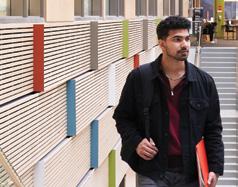
Tips to fund your future
Know the application deadlines, required materials, and evaluation criteria for internal and external competitive awards.
Tailor each application, revising your materials and highlighting the parts that demonstrate how you meet the award’s evaluation criteria.
Establish a relationship with your prospective supervisor or graduate program chair early in the application process. The better they know you as a scholar, the stronger a letter of reference they can write for you.
Connect with your all references and letter writers early, and give them a good lead time for each award’s deadline.
Travel and knowledge mobilization grants
These grants support the professional advancement of graduate students and raise the profile of the University by providing funding towards costs associated with knowledge mobilization activities such as presenting at conferences (in-person or virtual) and publication in open access venues.
The journey of a graduate student
As a UWinnipeg Master’s student, you will be part of a large intellectual community. Whether you want to acquire expertise for a professional career or conduct research to make a positive impact, our graduate degrees set a solid foundation for the next stage of your journey.
Some graduates move directly from Master’s studies into a professional career. Others continue with their academic studies and enter PhD programs. Some graduates start a professional or teaching career and later return to study for a PhD. All of these possibilities are open to you after graduation.
Professional development for success
UWinnipeg graduate programs have extensive co-curricular academic activities and events to help students further develop skills that are critical to postgraduate professional and academic careers. Examples of these professional development activities include:
Professional development workshops
Graduate Studies delivers high-impact training and engagement opportunities for graduate students through weekly, year-round workshops facilitated by subject matter experts. These sessions are strategically designed to support student development in four core areas: academic success, research skills, professional development, and equity, diversity, and inclusion (EDI).
Conferences and Symposiums
Explore exciting opportunities for research collaboration and academic conferences aligned with your field of study. Graduate Studies Travel and Research Mobilization Grants are available to support students in attending these enriching experiences — helping you grow your network, share your work, and gain global perspective.
External training opportunities
We sponsor graduate students to attend external career symposiums and specialized training workshops, enabling them to broaden their professional networks and enhance their career readiness.
The 3-Minute Thesis Competition
This competition provides the opportunity for graduate students to enter local, national, or international research communication competitions such as The 3-Minute Thesis Competition. There are cash prizes, but also there is a tremendous opportunity to build competencies in public communication of your research.
Practicums
Many of our programs offer practicums, including the MAE, MPA, MMFT. In these programs, students have the opportunity to do a short-term work placement in an industry setting relevant to their studies.
Teaching Assistant and Research Assistant positions
Available in most of our graduate programs. You can find these opportunities by contacting the department chair or your program advisor.
For more training information, please contact: graduatetraining@uwinnipeg.ca
Student support services
As a student at The University of Winnipeg you will have access to a variety of free student services that are there to support you in your studies. No matter what the problem or concern, there is always someone to help. One number connects you to all services: 204.779.8946
Library
The Library offers a wide variety of academic resources in online, multimedia, and print formats. Use the online Library portal to connect with Library services and resources.
4th Floor, Centennial Hall library.uwinnipeg.ca
Accessibility Services
In collaboration with students, faculty, and staff at The University of Winnipeg, Accessibility Services (AS) and Deaf and Hard of Hearing Services (DHHS) facilitate and promote the ongoing development of an accessible learning environment which provides students with disabilities, mental health concerns, medical conditions and temporary injuries the opportunity to participate fully in all aspects of campus life.
Manitoba Hall 1M35 accessibility@uwinnipeg.ca uwinnipeg.ca/accessibility
Student Central
Student Central offers many services including providing answers to questions about fees/payments, student ID cards, WebAdvisor assistance, confirmation of enrolment letters, as well as processing major declarations, transcripts orders, and more. Use the myVisit app to join the queue for drop-in sessions.
Student Services Centre (1st floor, Rice Centre) studentcentral@uwinnipeg.ca uwinnipeg.ca/student-central
Axworthy Health & RecPlex
The RecPlex houses a four-lane, 60-metre sprint track, a community gym, retractable batting cages, the Thomas Sill Community Multi-Purpose Room, a dance/yoga studio, and an underground parkade. Attend drop-in intramurals and community programs like yoga and soccer leagues.
350 Spence Street
204.988.7634
uwinnipeg.ca/recplex
Counselling services
Personal counselling is available to any student currently registered at The University of Winnipeg. Counselling at UWinnipeg is a collaborative, conversational process where students can address any concern, difficulty, or dilemma. Services are free of charge and confidential.
1D25 (1st floor, Duckworth Centre) 204.779.8946 | studentwellness@uwinnipeg.ca uwinnipeg.ca/student-wellness
Indigenous Student Services Centre
The Indigenous Student Services Centre (ISSC) offers a safe, friendly, and culturally-sensitive environment for all Indigenous students (First Nation, Métis, and Inuit) as they pursue their academic studies at The University of Winnipeg.
2L01A (2nd floor, Lockhart Hall) 204.779.8946 | issc@uwinnipeg.ca uwinnipeg.ca/issc
International Student Services (ISS)
International Student Services (ISS) provides a wide range of services including academic advising, airport reception, orientation to UWinnipeg, Winnipeg and Canada, immigration advising, and health insurance support.
491 Portage Ave (8th Floor, Rice Centre)
204.779.8946 | iss@uwinnipeg.ca uwinnipeg.ca/iss
Graduate student lounge
The graduate students’ lounge is an exclusive space for graduate students to study and meet other grad students. Students can contact Graduate Study Office to gain access.
4CM09 (4th floor, Centennial Hall) gradstudies@uwinnipeg.ca uwinnipeg.ca/grad-studies
Pathway programs prepare you for graduate studies
Are you interested in pursuing a Master’s program, but unsure of how to go about it?
Our pathway programs will provide you the opportunity to test your interest and passions within a short time.
The Indigenous Summer Scholars Program (ISSP)
Program length: 12 weeks (May to August)
ISSP is a 12-week applied research program that engages Indigenous undergraduate students and recent graduates from undergraduate programs in a variety of scholarly, collaborative, and community-based research projects. Successful ISSP applicants will be matched with a project based on their interests and will be supervised by a Faculty Researcher and contribute to their research projects. For more information, please contact issp@uwinnipeg.ca
Pathway to Graduate Studies (P2GS)
Program length: 4 weeks in May
P2GS is a 4-week research mentorship program taking place in May. The program is open to Indigenous students who have declared a major in a natural science and engineering field or are planning to declare a major in a natural science and engineering field and will be enrolled in UWinnipeg classes for the Fall term following the program. There is no minimum GPA requirement; what is most important is an interest in science and learning about science-based research. For more information, please contact our Research Office: researchoffice@uwinnipeg.ca
The University of Winnipeg has always provided me with a strong sense of community. The small class sizes, approachable faculty, and ample support were all defining factors in not only the competition of my undergraduate degree, but on my decision to pursue a Master of Science here. In my last year I had the opportunity to partake in the ISSP program. This program; which now sparks the start of my journey, further enhanced my sense of community here and allowed me to reconnect with my culture and those around me.

Maya Tighe
Student — MSc in Bioscience, Technology, and Public Policy; Alumna — ISSP
LEED certified
Our Science Complex is one of the most energy efficient educational lab buildings in North America.
30
State-of-the-art research and teaching labs.
Investing in your future
On average, master's degree graduates make 40-47% more than undergraduate degree holders in Canada.
41
Nationalities currently represented in university housing.
Mitacs Globalink Research Internship (GRI)
Summer (for international students)
Program length: 12 weeks
(12 consecutive weeks between May 1 — October 31)
The Mitacs Globalink Research Internship is a competitive initiative for international undergraduates from the following countries and regions: Australia, Brazil, Chile, China, Colombia, France, Germany, Hong Kong, India, Mexico, South Korea, Taiwan, Tunisia, Ukraine, United Kingdom and the United States.
From May to October of each year, top-ranked applicants participate in a 12-week research internship under the supervision of Canadian university faculty members in a variety of academic disciplines, from science, engineering, and mathematics to the humanities and social sciences.
Mitacs Globalink Research Internships are currently available at The University of Winnipeg. For more information, please contact our Research Office: researchoffice@uwinnipeg.ca
Globalink Research Internship alumni interested in returning to Canada for graduate studies are eligible for the Globalink Graduate Fellowship of $15,000 towards the first year of their Master’s or PhD program.
Qualifying Year (for all students)
Program length: one year
Qualifying Year status is intended for students who hold an undergraduate degree but require additional (core or prerequisite) courses to meet the entry requirements of a particular graduate program. Qualifying Year status will be recommended by the appropriate Graduate Program Committee (GPC) and programs of study will be designed specifically for individual students.
Upon successful completion of the Qualifying Year courses, students must apply for admission to Graduate Studies through the regular admission process. The application fee is waived for students re-applying after completion of a Qualifying Year. Students are advised to direct questions about the availability of this status to the Graduate Program Committee Chair of the program to which they are seeking entry.
“My mentors were like the paddles to my boat. Without them guiding and supporting me I wouldn’t have a sense of security, family, or accomplishment.”
Habib Ben Abdallah
Alumnus — MSc in Applied Computer Science and Society; Alumnus of the Mitacs Global Research Internship, Senior Quantitative Researcher at Quand-Dev
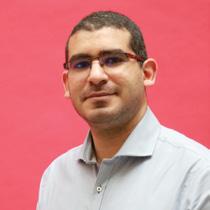

Campus living
uwinnipeg.ca/campus-living
Living in residence at UWinnipeg gives you the opportunity to live on your own, without being alone. You’ll meet students from across Canada and around the world, establish lifelong friendships, and get involved in a variety of activities on campus and in the surrounding area.
Residence options
McFeetors Hall Great-West Life Student Residence
Modern, air-conditioned, dorm-style units with a private washroom, common lounge areas with a TV, kitchen and free Wi-Fi, study areas, and laundry facilities. Room options include single and double furnished dorms as well as family options.
Balmoral Houses
Shared common areas and private bedrooms with air-conditioning.
For current residence fees, visit: uwinnipeg.ca/campus-living
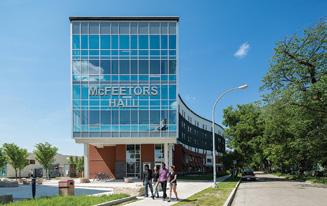

01. McFeetors Hall student lounge
02. McFeetors Hall exterior
03. Student in McFeetors Hall dorm
04. One of the Balmoral Houses
05. Balmoral House shared space
Apartment rentals
The first and second floor of McFeetors Hall offer reasonably priced, furnished and unfurnished apartments with no meal plan requirement: uwinnipeg.ca/campus-living-apartments
Alternatively, the University of Winnipeg Community Renewal Corporation has developed a number of buildings across from the main campus that offer suites with affordable student rents. For more information visit:
Downtown Commons: downtowncommons.ca
Muse Flats: museflatswinnipeg.ca
West Broadway Commons: westbroadwaycommons.ca


P 204.258.3838
E graduaterecruitment@uwinnipeg.ca @uwinnipeg_gradstudies /UWGradStudies @uwgradstudies.bsky.social /uwinnipeg company/uwinnipeg-faculty-of-graduate-studies
uwinnipeg.ca/graduate-studies
